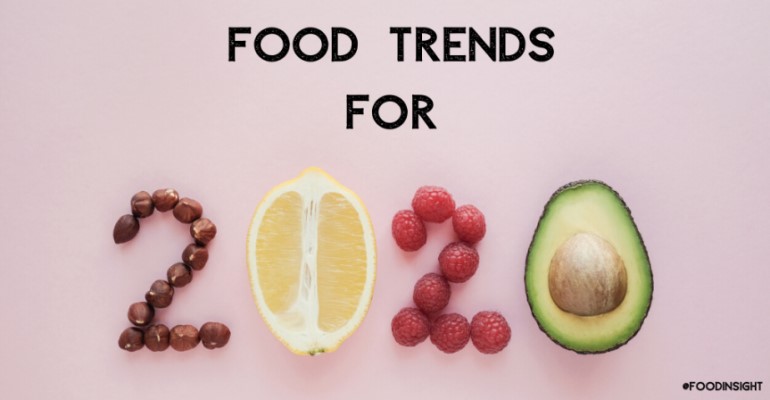Topics surrounding sustainability, climate change and alternative foods will move in some unexpected directions.
January 8, 2020

As a new year and new decade offer opportunities to take stock of where we’ve been and anticipate the changes ahead, the International Food Information Council (IFIC) Foundation is forecasting some broad trends for food and nutrition in 2020.
“In 2020, we predict that topics surrounding sustainability, alternative foods and healthy diets will move in some unexpected directions,” IFIC Foundation president and chief executive officer Joseph Clayton said.
1. Sustainability
Interest in sustainability has grown for the past few years, and while the topic will mature and evolve in 2020, confusion still surrounds the exact definition of sustainability, IFIC said.
For several years, the IFIC Foundation’s annual "Food & Health Survey" has asked whether sustainability was a factor in consumer food and beverage purchasing decisions. Between 2012 and 2018, that number ranged between 35% and 41% of consumers.
However, when the 2019 survey asked whether “environmental sustainability” was a factor in purchase choices, that number dropped to 27%, indicating that consumers’ notions of sustainability extend beyond just the environment. When it comes to environmental sustainability, consumers are eager to know and do more. According to the 2019 "Food & Health Survey," 63% said it is hard to know whether the food choices they make are environmentally sustainable. Among that group, nearly two-thirds (63%) said environmental sustainability would have a greater influence on their choices if it were easier to know.
Consumers also consider factors such as the labeling of various product ingredients and attributes, along with production methods and food packaging, to be under the sustainability umbrella. IFIC also expects concepts like soil health and regenerative agriculture —“giving back to the land” rather than just conserving resources — to gain traction in 2020.
2. Climate change
In 2020, consumers will become more concerned about the role the food system plays in climate change, such as the effects of agricultural production, food waste and transportation of goods, IFIC noted.
Environmental concerns will continue to drive greater adoption of plant-based diets. However, conceptions of plant-based diets vary. About one-third (32%) of consumers say a plant-based diet is a vegan diet, while another 30% define it as a diet that emphasizes minimally processed foods coming from plants, with limited consumption of animal meat, eggs and dairy. Another 20% believe it to be a vegetarian diet that avoids animal meat, while 8% say the aim is to consume as many fruits and vegetables as possible, with no limit on consuming animal meat, eggs and dairy.
3. New spins on old standbys
A cold glass of milk or a juicy burger have long been staples of American diets, but 2020 will see a proliferation of new spins on those old classics, IFIC said.
“If you thought you had seen the last of milk alternatives like soy, almond, coconut and rice, another grain will get in on the act: oat milk. Food producers and retailers are incorporating it into more and more products, offering more choices for those who can’t or don’t want to consume milk and dairy products,” IFIC said.
Consumer comfort levels with food technologies that add eating pleasure and dietary benefits will increase. Food companies will also make more progress toward producing plant-based products that more closely mimic the taste and other positive attributes of meat.
“Cell-based meat will become more and more viable and closer to within reach of average consumers,” IFIC said.
You May Also Like


.png?width=300&auto=webp&quality=80&disable=upscale)
